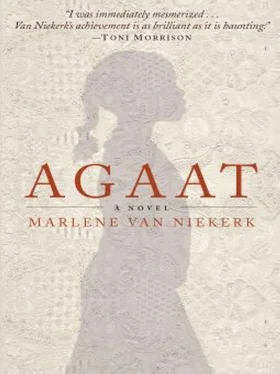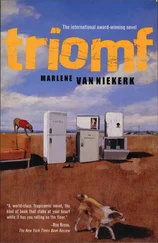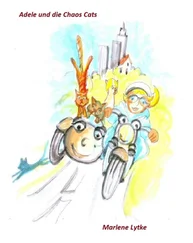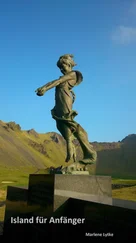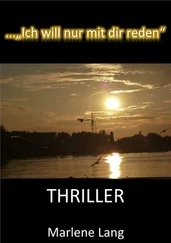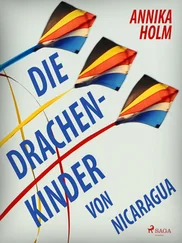A few times the plane circled over the yard, higher and still higher before striking a course in a straight line in the direction of the town.
As if he wanted Agaat to experience what it felt like to go away, you thought.
You didn’t want to drive back with Jak. You wanted to be alone to watch the tail-lights get smaller and smaller, the one white flank in the moonlight fainter and fainter. You wanted to think of Agaat in that cabin and the landscape unrecognisable from that height. You wanted to think and you didn’t want to think. You started walking back on your own along the road to the house. Some distance further down the yard was glowing and flickering with fires and torches and lit-up tents and the reflection of coloured lanterns in the dam. That’s what it would look like from the aeroplane. If you didn’t know what you knew, you could imagine that it was a fairy tale.
Your shoes, should you rather have taken them off? you wondered when you crossed the drift to the house. You had to step carefully there, so deeply rutted was the drift with car tracks. Halfway through you slipped badly and lost your balance, and stood still to recover your equilibrium, and to look and to listen. Grootmoedersdrift, you thought, how much must this crossing have seen. There were the shiny circle-tracks of insects on the water, the croaking of frogs, the distant sounds of the feast in the yard, coarse laughter at the dam. The black trunks of the wattles and the black stream in the light of the torches, the fluttering of moths around the light. If only I could read all these together, you thought, all these signs, if the meaning of everything could only be revealed to me here, a pointer for the future. The damp was starting to seep through your soles. You looked down, the polish of your shoes flickered eerily in the dark, as if your feet were packed in fire. Jak had had the torches planted there for the guests, Agaat’s orders, so that they would see the hitch in the bridge when they came around the corner. Not that that was the greatest problem. You should have had the silt hoed away there, the kerb was almost covered in it. You took off your shoes and scraped off the sticky black mud with a twig.
How long was Agaat in the air? Half an hour? Somebody charged into the garden in the jeep and deposited her at the mouth of the reception tent. A clutch of children jumped in to grab the next flip. You couldn’t see who was driving. The jeep left black soil-tracks on the lawn in pulling off. Agaat was in her white cap and her apron. The red scarf’s point was hanging out of her apron pocket. With rapid steps she walked along the yard to the house. A bunch of children clustered behind her.
What did you see Agaat? Did you nip, Agaat?
You trotted to catch up with her.
Tell, Gaat, what did you see? the children prodded.
Nothing, you heard her say, it’s night.
Baas, Agaat, you heard a male voice prompting, nothing, baas, it’s night, baas.
It was the white foreman who played chauffeur for one of the Meyers brothers.
D’you think because you were up there in the air you can now forget all about manners? I’m sure you saw something. Now tell us nicely what you saw.
The church tower, baas.
How do you know it was the church tower?
It’s got lights.
Baas.
Yes, baas.
Yes, baas, what?
The church tower has lights, baas.
Mr Lotriet, you addressed the man, your people want to leave, they’re looking for you there in the tent. And there’s strong coffee, looks as if you could do with some before you risk it on the road.
The man slunk off with a mumbled yes, Mrs de Wet, fine, Mrs de Wet.
Where are your manners? you scolded the children.
Come, Agaat, pleased to see you’re in one piece. I’m walking with you.
I’m walking alone, Agaat said to you.
You followed her. The sound of the aeroplane drowned out your voice. Low over the tops of the bluegums and the roofs of the outbuildings it sheared in the direction of the dam. You heard screams and saw the lanterns bobbing on the raft as the people fell flat to get out of the way.
A line of hired waiters with big trays full of dishes of dessert brushed past you on the garden path. The smell of baked chocolate pudding and date pudding and brandy tarts and liqueur sponges in your nose, Agaat’s puddings for Jakkie’s birthday, Jakkie who was yawing to and fro over the yard in the plane so that it sounded as if all hell had broken loose.
Twice you heard something spoken next to you before you could quite catch what was being said.
Agaat can’t come and dish now, Mies, she’s gotten behind with her work in the kitchen. It was Saar. The hesitation in her voice made you press on.
Is she fit to work?
She’s sitting there in her room in the dark, she says her head is sore.
It helped, that you had something to do. You wanted to put an end to the evening. Your actions felt sluggish, your voice muted. It was getting too late for your liking. You sent somebody to chase people off the raft, issued orders that the garden lanterns should be blown out so long and the torches extinguished. You blew out the lanterns in the marquee yourself and started emptying the ashtrays and picking up the butts from the floor. You found yourself standing behind a pudding table, faced with a horde of children of whom the bigger ones had been drinking furtively. Rudely they pointed at what they wanted you to dish up, prodded their fingers into the bowls, a feral look in their eyes.
Hey you! Back! Lietja snarled at one whose sleeve was trailing in the bowl and pushed him away with the back of a spoon against the chest. The plates of the others she heaped up with a grin, everything mixed up.
It was never like that when Agaat stood behind the tables. She preserved the order of the distribution point, gauged the local level of manners. She would have said: Adults first! and like the crack of a whip that would have made the children stand back. She would have made everybody first look at the offering, she would have told them what everything was, all the wonderful names, and then she would have dished bit-by-bit and said come back for more, there’s plenty more.
Over the chaos of the pudding table you looked into the tent.
Around the drinks table across the way the men were huddling together. It was the younger ones who, wet with perspiration from the dancing, were coming to quench their thirst. Raucously they shouted their orders at the waiters. Heads flung back they drank from beer bottles, belched, and then again heads together talked and laughed.
Early evening already you’d seen the hay barn’s door ajar and once or twice had seen a couple go in and out. Now it was evident from the men’s attitudes that they were bragging to one another about their conquests. Two of the childminders sat at one table removing straw from their hair. The women and some of the older and more restrained couples gazed at them expressionlessly.
Every now and again the aeroplane flew low over the roof of the tent, fluttering the candle flames on the tables. Everybody looked up as if they expected to see the wings gash through the tarpaulin.
You crossed the yard to the barn. A clashing of metal was audible, against the grain of the music. It was the ploughshare under the wild fig in front of the door of the barn. It was Corrie Meyers on only one high-heeled shoe. She was hammering on the ploughshare with the crowbar that Jak had hung there to summon the labourers for falling-in time. The crowbar was too heavy for her. Every time she lifted it, her wrists with the silver bangles buckled. Every time she delivered a blow she lost her balance, so that she had to clutch at the swinging share to steady herself.
Corrie’s lipstick was smudged and her mascara was running down her cheeks.
Читать дальше
